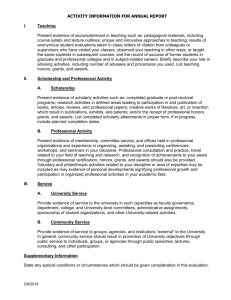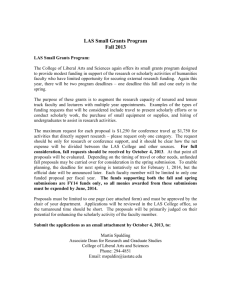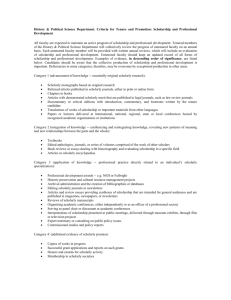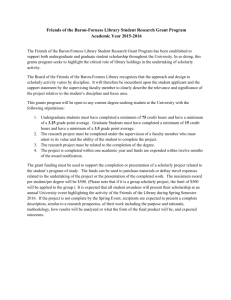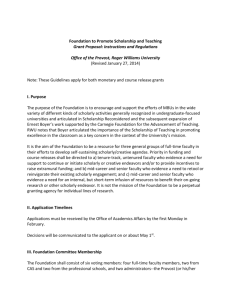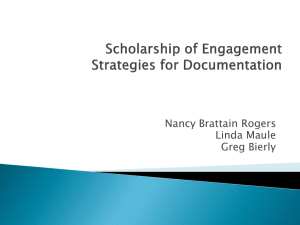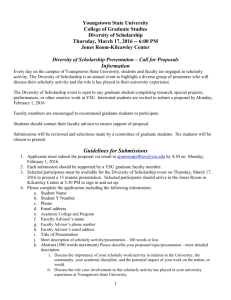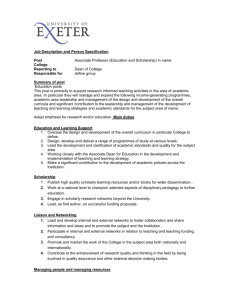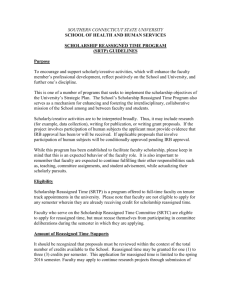Grant 4 Policies & Procedures
advertisement
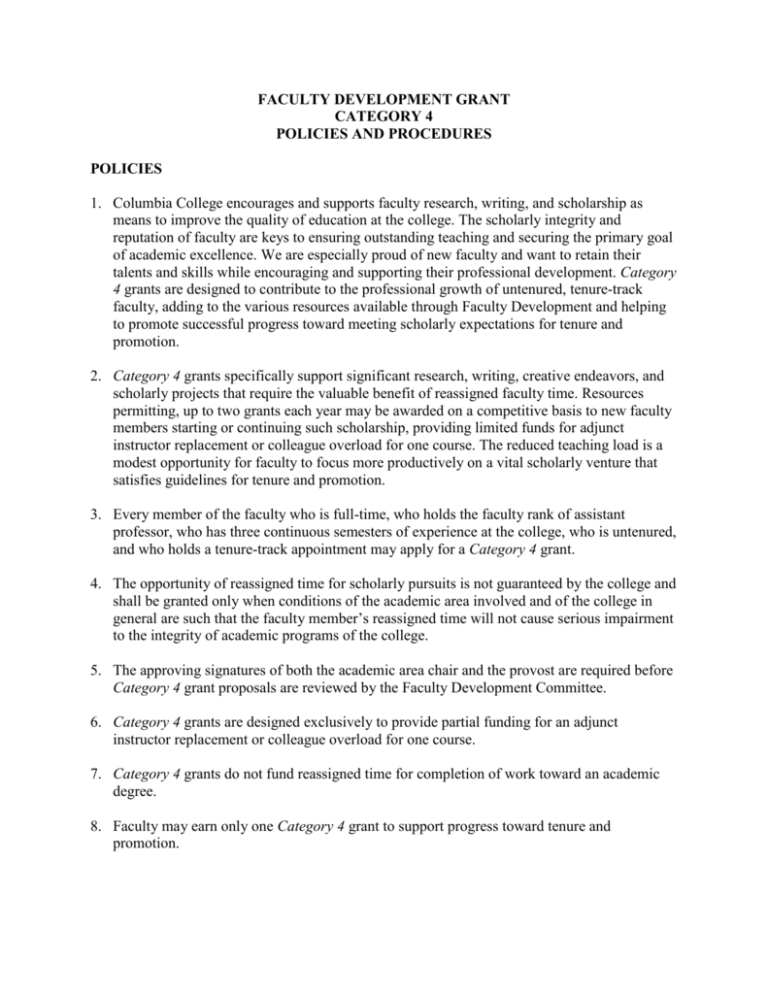
FACULTY DEVELOPMENT GRANT CATEGORY 4 POLICIES AND PROCEDURES POLICIES 1. Columbia College encourages and supports faculty research, writing, and scholarship as means to improve the quality of education at the college. The scholarly integrity and reputation of faculty are keys to ensuring outstanding teaching and securing the primary goal of academic excellence. We are especially proud of new faculty and want to retain their talents and skills while encouraging and supporting their professional development. Category 4 grants are designed to contribute to the professional growth of untenured, tenure-track faculty, adding to the various resources available through Faculty Development and helping to promote successful progress toward meeting scholarly expectations for tenure and promotion. 2. Category 4 grants specifically support significant research, writing, creative endeavors, and scholarly projects that require the valuable benefit of reassigned faculty time. Resources permitting, up to two grants each year may be awarded on a competitive basis to new faculty members starting or continuing such scholarship, providing limited funds for adjunct instructor replacement or colleague overload for one course. The reduced teaching load is a modest opportunity for faculty to focus more productively on a vital scholarly venture that satisfies guidelines for tenure and promotion. 3. Every member of the faculty who is full-time, who holds the faculty rank of assistant professor, who has three continuous semesters of experience at the college, who is untenured, and who holds a tenure-track appointment may apply for a Category 4 grant. 4. The opportunity of reassigned time for scholarly pursuits is not guaranteed by the college and shall be granted only when conditions of the academic area involved and of the college in general are such that the faculty member’s reassigned time will not cause serious impairment to the integrity of academic programs of the college. 5. The approving signatures of both the academic area chair and the provost are required before Category 4 grant proposals are reviewed by the Faculty Development Committee. 6. Category 4 grants are designed exclusively to provide partial funding for an adjunct instructor replacement or colleague overload for one course. 7. Category 4 grants do not fund reassigned time for completion of work toward an academic degree. 8. Faculty may earn only one Category 4 grant to support progress toward tenure and promotion. 9. The selection process for Category 4 grants is highly competitive, based entirely on the merits of the scholarship, the potential for significant professional achievement, and the approval of the academic area chair and provost. 10. Faculty who earn a Category 4 grant may also apply for Category 1-3 grants to help support their scholarly work. Additional information on external funding for research and scholarship is available from the Director of Faculty Development and the Director of Grants in the Office of Advancement. PROCEDURES 1. Applications for Category 4 grants must clarify (a) the purpose, (b) professional significance, (c) contribution to the discipline, (d) planned specific outcomes, and (e) time frame for actual completion of the scholarly venture. 2. Applications are submitted to the Faculty Development Committee by its normal due date for grants in spring. Awards are highly competitive, and resources are limited. 3. The Faculty Development Committee screens all applications for conformity to the policies and procedures and then ranks them according to the following criteria: a) b) c) d) e) Significance of the project as determined in review of application. Contribution of the project to the discipline or profession. Contribution of scholarship to faculty excellence in teaching. Potential for personal progress toward successful tenure and promotion. Availability of funds. 4. Proposal will be judged on its merits and on its promised return of significant scholarly achievement. Seniority is considered only when two or more proposals are judged to have equal worth. 5. Upon completion of the scholarly project for which the grant has provided reassigned time, the faculty member will submit a brief written report and evidence of scholarly achievement and will share the results with faculty colleagues, staff, and students by making a presentation through such mechanisms as a Collaborative Learning Center session, a Forum on Faculty Scholarship event, the Faculty Convivium, or other public occasion on campus for conversation about the importance of faculty scholarship in building a community of academic excellence.
